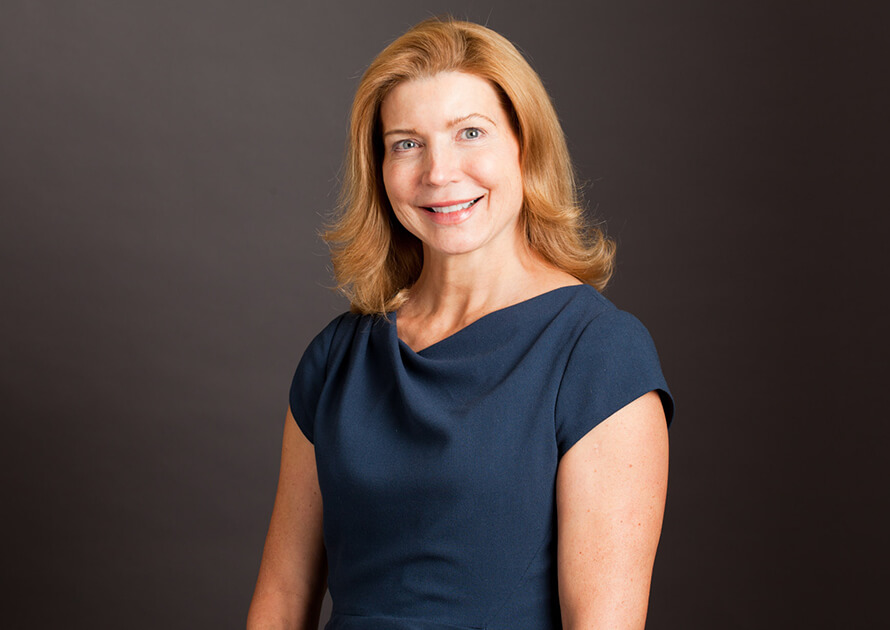The career woman: a corporate cannibal who foregoes friendships and sacrifices relationships all in pursuit of the top job – at least this is how we’ve come to demonize the female professional. “It’s dated, very dated,“ scoffs Katrina Landis, BP executive vice president, corporate business activities. Landis has a highly successful career but she is also married with four children, two of whom were adopted from Russia. A veritable superwoman – who every month spends two weeks in London, one week in the U.S. and a week elsewhere – admits that she isn’t infallible, explaining how, like many mothers, she had a career wobble. “When I was in Alaska and went from two to four children, although I knew what I wanted to accomplish, my superiors who were making staffing decisions were assuming that I was on the mommy track: I wasn’t mobile and I didn’t want big challenges,” says Landis, speaking on behalf of BP’s support for International Women’s Day. It wasn’t until that someone in the ‘know’ said that she was heading from the fast-stream into the stroller stream that Landis knew to take action. “I had to go about putting things straight with my line manager: I told him that I was very interested in developing my career; I was open for relocation and international moves,” says the American former COO of BP renewable energy. The 55-year-old continues: “I realized that with something as important as my career, it’s important not to have a single point of failure – I told other people who might be interested in knowing what I was doing and capable of doing.” It’s a point that Landis, who serves on Women and the Green Economy (a campaign to promote women’s leadership in creating a sustainable future), reiterates throughout our meeting at the BP headquarters in St. James’s Square, London. It’s the ambitious booze-soaked career chatter that comes naturally amongst braggadocian young men, but still, even in the 21st century is less easy territory for women. “It’s really funny that networking in some countries is still a negative for women,” she muses. “A lot of women believe all they have to do is turn up, do a good job and people will notice and promote them. But it’s not sufficient. I found going out and having a drink is really important; you have to be clear with colleagues about what you want to do – but it’s a time when you handle disputes and build a camaraderie with your colleagues. You learn what’s behind the suit,” the psychology graduate extols. The hardworking, hard-drinking culture is something she became familiar with during her 12 years spent on the trading floors; in fact, the international trading business is now a part of her portfolio. The other valuable lesson she learnt from the bullish man’s world was “the need to be persistent” when striving for her goals. It’s well documented that women are less likely to ask for a salary raise or promotion than their male counterparts. So was the only woman on BP’s executive board reluctant to ask for a raise? “Oh you can’t come out of trading and not know how to negotiate,” she says, dismissively laughing off the question. Clearly being ballsy in the boardroom hasn’t fazed Landis, but it didn’t stop one of her superiors at the beginning of her oil and gas career from attempting to turn her into one of the boys. “On an assessment program to develop me as a leader and commercial talent, a man on the leadership team – who I think was genuinely trying to be helpful – said, ‘Now you’re going to be a leader you need to cut your hair and start wearing business suits’ – this was a time when big shoulders were in,” describes a dismayed Landis. “He was effectively encouraging me to be more like a man because I would be the only woman on the team.” Landis, sitting in an electric blue dress, matching necklace and parted hair, politely ignored the advice. Although she warns that women still need to be careful about not sending the wrong signal. “You need to look professional and somewhat conservative but you don’t need to be in flats and suits with your hair pulled back, quipping, ‘We’re hiring you for your brain; not for what you wear’.” Perhaps it’s the primal-minded men inhibiting gender equality in the workplace who need educating. The key is to keep it simple: “Men need to consider how they would want their daughter, sister or partner to be treated – something that’s not too academic,” smirks Landis. Essentially, just appeal to a man’s emotional and territorial side. Jokes aside, gender equality is now on the agenda of boardrooms around the world, in part due to Norway’s law requiring 40 per cent female representation – and indeed the statistics that support the move. “Studies show a correlation between greater performance of a company and the number of women on the board,” says Landis. Although she accepts that social change can take a generation, the executive believes that “if it’s left to its own devices things are unlikely to change and this is where targets, like in Norway, will promote a faster timeframe.” At the moment, change isn’t happening quickly enough for the BP exec, who wants to see more women coming through the engineering and mathematical paths, describing them as “edgier skills” that open doors to becoming a business leader. She describes this less orthodox female climb to the top as “getting scars on your back.” That said, perhaps an element of aggression is no bad thing if you truly want to get your claws into the career ladder. Three career Rs, as told by Katrina Landis
Results: Be clear about what you need to achieve and when and how you’re going to achieve it; work on high profile projects that get you noticed.
Relationships: Network so people know who you are and what you’re capable of. Tell them what your dream is and what you’re prepared to do to achieve it – the more people who know, the better. Reputation: What are you going to be known for? Being a generalist is okay but you need to have something to show you’re excellent, so that you become the go-to person and demonstrate your expertise.
Katrina Landis, Executive Vice President of BP explains how to succeed

Provided

















